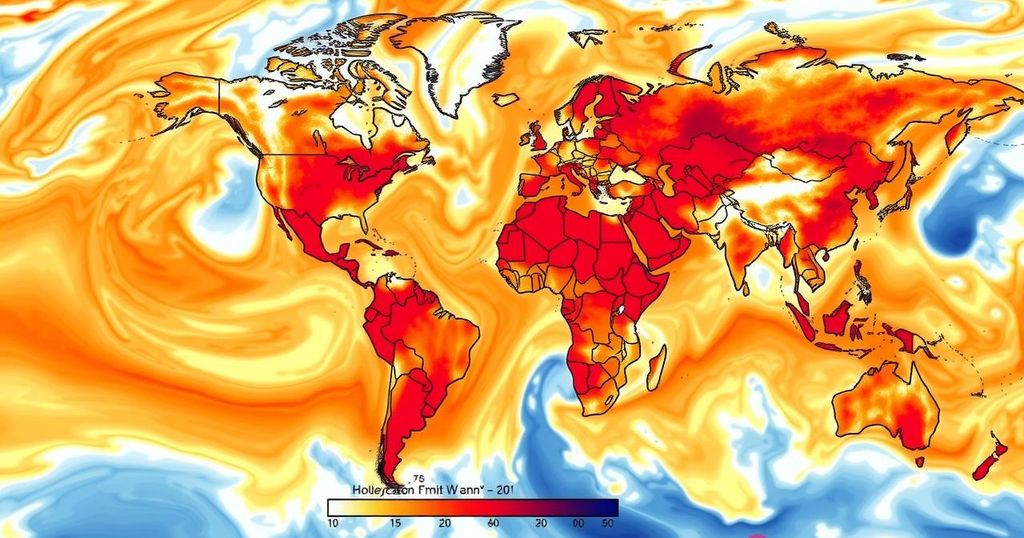The World Meteorological Organization reports that 2024 is expected to be the warmest year on record, following a decade of unprecedented heat driven by human activities. Significant extreme weather events have caused extensive loss of life and displacement, particularly affecting vulnerable communities. The UN emphasizes the critical need for immediate global action to curb emissions and enhance climate resilience against worsening conditions. The ongoing climate crisis necessitates urgent commitments to environmental sustainability and community protection.
The World Meteorological Organization (WMO) has announced that 2024 is poised to be recorded as the warmest year ever, concluding a decade marked by extraordinary heat exacerbated by human activity. Secretary-General Celeste Saulo emphasized the year’s catastrophic weather events, which caused significant human suffering, especially due to flooding and heat-related disasters across the globe. Reports indicate that the year saw the highest instances of extreme weather, leading to at least 3,700 confirmed deaths and displacing millions, with unaccounted casualties possibly reaching hundreds of thousands. The WMO is preparing to release its comprehensive report on global temperature findings, following the alarming trends observed in 2024.
Extreme heat days have surged this year as climate change contributed to 41 additional days of hazardous heat exposure per individual. Notably, small island nations and developing countries experienced these dangers most acutely due to their limited adaptive capacities. In a solemn reflection, UN Secretary-General António Guterres described the past decade as a sequence of deadly heat years, urging for immediate actions to limit emissions and transition to renewable energy solutions, underscoring the critical state of global climate health.
Current climate trends show a warming of 1.3°C, with projections indicating that within the next five years, global temperatures are likely to temporarily exceed the critical 1.5°C threshold established in the Paris Agreement. The outcomes of the recent UN climate conference are disappointing, failing to establish new targets to combat rising fossil fuel emissions and secure necessary climate finance for vulnerable nations. The WMO’s Saulo pointed out that each increment of warming has consequential implications for climate extremes, asserting the urgent need for comprehensive monitoring and response initiatives to address greenhouse gas emissions effectively.
In a collective move towards addressing these crises, the WMO is launching the Global Greenhouse Gas Watch initiative to improve the tracking of greenhouse gas concentrations and emissions, aiming to enhance the reliability of climate data for nations. Moreover, there is a concerted push for the advancement of early warning systems and better climate data collection across developing regions, reinforcing the need for global cooperation to mitigate the increasingly dire impacts of climate change.
The report from the World Meteorological Organization highlights the pressing issue of climate change, which has led to unprecedented greenhouse gas levels and extreme weather incidents globally. Human activities significantly contribute to these changes, resulting in heightened temperatures and extreme weather patterns. The WMO’s findings connect climate change to devastating consequences such as loss of life and displacement, necessitating urgent action from global leaders to counteract these trends. Growing concerns from the scientific community underline the need for international cooperation to address these environmental challenges effectively.
In summary, the WMO’s announcement regarding 2024 being the warmest year to date underscores the severe implications of climate change on global weather patterns, human health, and safety. With record-breaking heat and increasing extreme weather events, the urgent call for action from world leaders highlights the necessity for commitments to reduce greenhouse gas emissions and enhance adaptive strategies. As the climate crisis escalates, it is crucial to prioritize collaborative efforts and innovative solutions to foster a sustainable future.
Original Source: healthpolicy-watch.news






